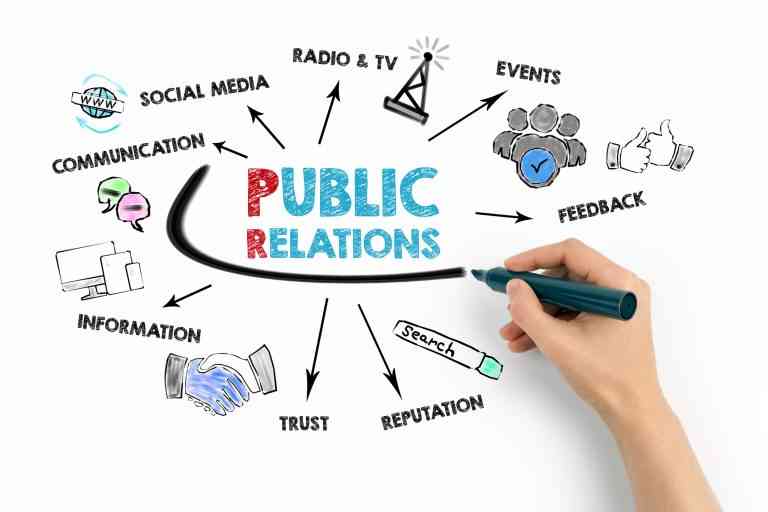
Crisis communication is an essential aspect of public relations that involves the dissemination of information during times of organisational distress.
Whether triggered by a death of a top executive, natural disaster, corporate scandal or any unexpected event that threatens a company’s reputation or operations, effective crisis communication can help to minimise the damage, restore public trust and guide the organisation back to stability. It is not just about managing information; it is about strategically navigating through turbulent situations with transparency, empathy and clarity.
In an era where information spreads rapidly on social media platforms, the importance of crisis communication has never been more evident.
Social media has transformed the way crises unfold and how organisations respond to them.
A single post or viral video can escalate a situation from a minor issue to a full-blown crisis in a matter of minutes. For businesses, governments and other organisations, having a well-thought-out crisis communication strategy is critical to controlling the narrative and ensuring their response is timely, co-ordinated and credible.
At the core of effective crisis communication is the ability to convey clear, honest and consistent messages.
One of the key principles is to acknowledge the crisis quickly. In the past, organisations often hesitated to speak out immediately for fear of saying the wrong thing. However, modern crisis communication calls for rapid response, ideally within the first hour of a crisis, to prevent misinformation and rumours from taking over.
Delayed responses can give the impression of negligence or a lack of accountability, which further damages public trust. A swift and transparent response shows that the organisation is in control of the situation and committed to resolving it.
- Navigating PR storms with clarity and strategy
Keep Reading
However, speed must be balanced with accuracy. A rush to respond can lead to missteps, such as providing incomplete or inaccurate information. Therefore, the initial communication should be focused on acknowledging the crisis, expressing empathy and committing to finding a solution. As more details become available, updates should be provided regularly, ensuring the public is kept informed every step of the way.
One of the most critical aspects of crisis communication is the human element. Stakeholders want to know not only what happened but also how it affects them and what is being done to resolve it. This is why empathy is an indispensable component of crisis communication. A statement that simply outlines facts without acknowledging the emotional toll on those involved, whether customers, employees, or the public, can appear cold and detached. Acknowledge the human impact of the crisis, express genuine concern and assure people that efforts are underway to rectify the situation.
Another key element of effective crisis communication is consistency. The crisis response should be co-ordinated across all levels of the organisation, from the CEO to customer service representatives. Mixed messages or conflicting statements can confuse the public and harm the organisation’s credibility. A central crisis communication team should be established, responsible for crafting and delivering public statements, ensuring that the message is uniform and aligned across all platforms, including social media, Press statements and interviews. Additionally, the tone and language used should reflect the organisation’s values and demonstrate that it is taking the matter seriously.
In recent years, social media has changed the landscape of crisis communication dramatically. While social media can amplify crises, it also provides an immediate platform for organisations to communicate directly with their audience. It allows organisations to counter misinformation quickly, address concerns and engage in real-time conversations with affected stakeholders. However, it also opens the door for negative comments and public criticism, making it more important than ever for organisations to actively monitor their online presence during a crisis.
One of the challenges that organisations face during a crisis is the temptation to minimise or downplay the issue to protect their reputation. While this might seem like a sensible approach, it often backfires.
The public is increasingly sceptical of corporate spin and attempts to cover up or downplay the crisis only fuel further distrust. Acknowledging the gravity of the situation, accepting responsibility where appropriate, and outlining the steps being taken to resolve it can go a long way in rebuilding credibility. Organisations that handle crises well often see a long-term boost in their reputation, as they are perceived as transparent and responsible. The aftermath of a crisis is just as important as the initial response. Once the immediate danger has passed, the focus shifts to recovery and rebuilding. This includes not only repairing the organisation’s image but also ensuring that the root causes of the crisis are addressed.
A post-crisis evaluation is critical to identify what worked well, what did not, and what can be improved in future crises. This reflection allows organisations to learn from the experience and strengthen their crisis communication strategies for the future.
In conclusion, crisis communication is a vital skill for any organisation, whether public or private, large or small. The ability to communicate effectively during a crisis can make the difference between a temporary setback and a long-term reputational disaster.
In a world where information is instantaneous and the public is increasingly demanding transparency, organisations must be prepared to respond quickly, consistently and empathetically.
A well-executed crisis communication strategy not only helps to mitigate the impact of a crisis but also enhances trust, loyalty and the overall reputation of the organisation in the long run.
- Cliff Chiduku is the director of marketing, information and public relations at Manicaland State University of Applied Sciences in Mutare. He writes here in his personal capacity. He can be contacted on cchiduku@gmail.com or call/app +263775716517.










